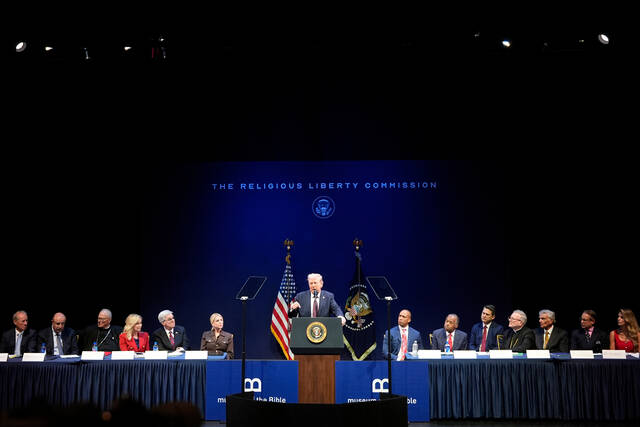College students trying to understand what precise combination of courses they need to graduate generally take it on faith that if they follow a campus adviser’s instructions, they will get their degree.
But what if the adviser gets it wrong?
What if they needed more courses than they were told to take, and nobody noticed until the last of all the commencement photos were snapped and the caps and gowns were put away?
For Jennifer Espinoza and at least 16 of her University of Pittsburgh classmates, euphoria over their April 30 graduation came crashing down this month when Pitt notified them that they had not met their requirements and needed to take additional courses.
She said a number of courses that they had been told could be substituted or waived, in fact, could not.
They had enrolled in Pitt’s Combined Accelerated Studies in Education program within Pitt’s School of Education, a dual-certification, dual- degree offering and a pathway to teaching. The program allows students to complete bachelor’s and master’s degrees in five years.
“It was one of those heart-drop moments,” Espinoza said of reading the email informing her that she had not meet her degree requirements. “I’m a first-generation student. I haven’t even told my immediate family about this.”
Espinoza, 21, who left campus thinking she had received a degree in applied developmental psychology, said she and the others “walked the stage and everything” for commencement.
“We graduated — well, graduated with quotation marks around it,” she said.
Pitt acknowledged the issue had impacted a number of students in the school and said it will pay for their courses and help them toward completion.
“The university deeply regrets this situation and is in the process of investigating how this occurred and the steps to take to ensure it does not happen again,” said a statement released by Pitt spokesman Jared Stonesifer.
“The School of Education proactively identified this issue recently and, since that time, has worked diligently to ensure that all impacted students are properly prepared for the certificates they are pursuing,” the statement said.
Espinoza said even if Pitt is paying for the additional courses, it still is a major disruption for students already making plans for master’s-level work and student teaching. She said she wants to teach kindergarten through fourth grade.
She said she still needs to take only one literature course, but other classmates she knows have four courses or more left to take.
“They are telling us it is not going to delay our ability to teach,” she said. “How do they know that? We have to work and student-teach and at night take courses.”
Espinoza, who said she liked the Pitt program, took community college courses and others in high school to ensure she could get into the Combined Accelerated Studies in Education program.
“We think they should waive the courses as we were told under the school’s advisement (that requirements had been met) and (Pitt should) give us our diplomas,” said Espinoza, who is from the Harrisburg area. “We worked hard to get them. We just don’t think it’s fair that, a month later, they are going to withhold our diplomas.”
An official with a higher education group, NACADA: The Global Community for Academic Advising, said he had not heard of a similar situation.
Degree requirements sometimes can be so complicated that they can’t be captured by a computerized record-keeping system, said Sean Bridgen, associate director for external and institutional partnerships with NACADA, headquartered at Kansas State University.
Still, he said, there typically are multiple checks before commencement to ensure such mistakes haven’t been made.
“At the end of the day, the student should not be confused. The adviser should not be confused,” he said. “This is really rare.’’
Pittsburgh attorney Craig Fishman, a partner with Shenderovich, Shenderovich & Fishman, said students in such situations have a right to be upset as they can suffer emotionally and financially.
“A student’s relationship with a university is contractual. You pay them money and they provide you with education credits,” he said.
“‘As far as legal recourse, the answer is they may” have one, he said.








